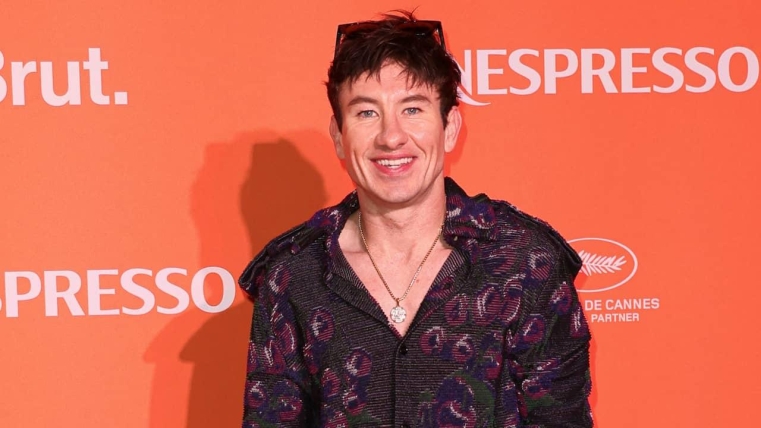Selena Gomez Opens Up About Health Challenges Linked to Body Shaming
In a candid revelation, Selena Gomez has shared her experiences with health challenges triggered by body shaming remarks that have circulated in the media. The singer and actress bravely opened up about how such comments have impacted her mental and physical well-being, leading to significant flare-ups related to her lupus diagnosis. The national conversation around body image has often left celebrities vulnerable, and Gomez is not alone in feeling the repercussions. She emphasized that the pressure to conform to unrealistic beauty standards can have serious health implications, stating that her body should not be a topic of discussion for the media or public.
During an emotional interview, Gomez articulated the need for compassion and understanding regarding personal struggles with body image. She outlined the following key points:
- Mental health awareness: Recognizing how body shaming can lead to anxiety and depression.
- Advocacy for change: Encouraging a shift in societal attitudes towards body positivity and diversity.
- Personal resilience: Highlighting her journey towards self-acceptance and the ongoing battle with health challenges.
Gomez’s bravery in sharing her story aims to foster dialogue and encourage others facing similar struggles to prioritize their health above societal expectations.

The Impact of Body Shaming on Mental and Physical Well-Being
In an age where social media amplifies voices—both positive and negative—body shaming has emerged as a pervasive issue affecting countless individuals, including high-profile celebrities like Selena Gomez. Recently, Gomez revealed that a derogatory comment about her body triggered a health flare-up, underscoring the profound link between mental and physical health in the context of body image. Studies have shown that body shaming can lead to an array of psychological challenges, including anxiety, depression, and low self-esteem, which often translates into physical health issues as well. When public figures face unwarranted scrutiny, it not only impacts their well-being but also sends a harmful message to their followers about societal beauty standards.
The ramifications of body shaming extend beyond momentary distress; they create a cycle of self-criticism and disordered eating patterns that can have lasting effects. Some of the consequences include:
- Increased Stress and Anxiety: Negative comments can trigger heightened emotional distress, leading to chronic stress responses.
- Unhealthy Coping Mechanisms: Individuals may resort to unhealthy behaviors, such as extreme dieting or substance abuse, as a means of coping with their emotional pain.
- Physical Health Decline: The mental toll of body shaming can manifest in physical ailments such as fatigue, insomnia, and even autoimmune disorders, as experienced by Gomez herself.
Understanding the intersection of mental and physical health in the wake of body shaming is crucial for fostering a society that values individuality and promotes self-acceptance, rather than fueling harmful narratives that diminish self-worth.

Strategies for Combating Body Shaming and Promoting Self-Acceptance
In the wake of body shaming incidents, individuals can take proactive steps to foster self-acceptance and resilience against societal pressures. Establishing a strong support network is crucial; confiding in friends, family, or even support groups can provide a safe space to share feelings and experiences. Engaging with positive role models, whether through social media or community events, can inspire a healthier relationship with one’s body. It’s important to actively consume media that promotes diversity in body types, challenging the conventional beauty standards that often lead to feelings of inadequacy.
Another effective strategy involves cultivating mindfulness and self-compassion. Practicing techniques such as meditation can help individuals reconnect with their bodies and dispel negative thoughts. Daily affirmations that focus on personal strengths and qualities rather than appearance can also reshape internal narratives. Additionally, developing hobbies and interests outside of physical appearance fosters a sense of identity that is not solely based on societal expectations. By embracing these strategies, individuals can create a more loving and accepting mindset, allowing them to combat body shaming and celebrate their unique selves.

Community Response and Support: How Fans Are Rallying Behind Selena Gomez
In the wake of Selena Gomez’s candid revelation about her recent health flare-up triggered by body shaming comments, fans and supporters have come together in unprecedented ways. Through social media platforms, a wave of solidarity has emerged, with hashtags like #ShameOnYou and #SelenaStrong trending across Twitter and Instagram. Fans have shared their personal experiences with body image issues, amplifying Selena’s message about self-acceptance and the need for compassion in discussions surrounding appearance. The outpouring of love is not only a testament to Gomez’s influence but also a powerful reminder of the collective resilience within her fanbase.
Many influencers and fellow celebrities have also joined the conversation, publicly expressing their support and sharing insights on mental health and body positivity. Notable figures in entertainment have issued statements highlighting the importance of uplifting rather than tearing down individuals, particularly public figures who are often subjected to relentless scrutiny. Some initiatives have even emerged, including community support groups and awareness campaigns aimed at promoting body positivity and understanding. Such grassroots movements are proving to be a beacon of hope, encouraging open dialogues about the impact of harsh criticism and the need for empathy in our society.
Selena Gomez’s candid revelation regarding her health flare-up underscores the profound impact of body shaming and societal pressures on mental and physical well-being. As a prominent figure in the public eye, her experiences resonate with many individuals facing similar struggles. Gomez’s openness not only sheds light on the often-overlooked consequences of body image issues but also serves as a powerful reminder of the necessity for compassion and understanding in discussions about body positivity. As the conversation around these critical issues continues, Gomez’s story encourages a collective movement towards greater acceptance and support for all, irrespective of size or appearance.





